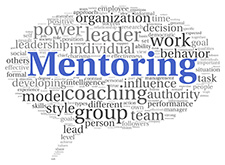![]() Mentors are people who can help you in your career, professional network, and personal growth. The Huffington Post defines mentorship as a “partnership where a ‘mentee’ is assigned to a more experienced ‘mentor,’ who passes on valuable aspects of their own accumulated experience and wisdom for the benefit of the mentee’s personal and professional development.”
Mentors are people who can help you in your career, professional network, and personal growth. The Huffington Post defines mentorship as a “partnership where a ‘mentee’ is assigned to a more experienced ‘mentor,’ who passes on valuable aspects of their own accumulated experience and wisdom for the benefit of the mentee’s personal and professional development.”
In short, it’s an invaluable relationship. And mentors can be of any age, profession, or education level. Since mentorships are so important, we want to know what kind of mentor relationship you have. Let us know by voting in our poll!
Do you think mentorships are important? How do you benefit from your mentor? Let us know in the comments section below.
Movin’ On Up is brought to you by Express Employment Professionals.





